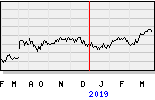
Changing how our ingredients are grown will help protect soil, preserve water, restore nature and build a more resilient supply chain. Learn how we’re working with farmers and partners to roll out regenerative agriculture across 1 million hectares.
We are committed to making a greater impact, benefiting nature by implementing regenerative agriculture practices. Our new goal is to cover 1 million hectares.
We have 25 regenerative agriculture projects in progress, with contracts covering almost 350,000 hectares (as of August 2024).
Our Nutrition business group is spearheading our regenerative agriculture efforts, with the aim of covering 650,000 hectares by 2027. This represents approximately 50% of our land footprint in Nutrition.
Farming is fundamental to our business, providing many of the raw materials we use in our products.
Globally, 38% of land is used in some way by agriculture,[a] creating a significant impact on the environment. Food systems account for a third of the world’s greenhouse gas emissions, with agriculture and land use responsible for two-thirds of these.[b] According to the FAO,[c] thirsty crops are impacting water-scarce regions, with agriculture accounting for 72% of all surface and groundwater.[d]
It’s clear the way we farm needs to change, both for the sake of our planet and the resilience of our business. We are committed to making a greater impact in promoting nature and regenerative agriculture, and our updated sustainability goals (PDF 131.35 KB) reflect this. We have set a target of implementing regenerative agricultural practices over 1 million hectares of land by 2030, and regenerative agriculture is one of the ten action areas in our updated Climate Transition Action Plan (PDF 7.98 MB).
This way of farming can reduce emissions at the farm level and help sequester (remove) carbon dioxide from the atmosphere, storing it in the ground as soil organic carbon. This also increases the climate resilience of our agricultural systems. Working with partners and suppliers, we now have 25 regenerative agriculture projects in progress, with contracts covering 350,000 hectares (as of August 2024).
Increasing the impact of our regenerative agriculture commitments
Since we published our Regenerative Agriculture Principles in 2021, we’ve been collaborating with farmers and suppliers to implement a range of practices, including using cover crops and crop rotation, reducing tillage and substituting synthetic fertilisers with natural alternatives.
Many of our projects have offered useful insights and delivered promising results. We’ve helped to reduce nitrate pollution from fertilisers and improved soil quality in soy farms in Iowa. We’ve also worked with tomato farmers in Spain to protect vital water resources and to reduce their greenhouse gases by a third per kilogram of tomatoes grown. These outcomes give us hope that, together, we can shift the way food is grown for good.
see & read more on
https://www.unilever.com/news/news-search/2024/how-unilevers-implementing-regenerative-agriculture-practices-across-1-million-hectares/?utm_source=SignUp&utm_medium=Email&utm_campaign=NewsSignUp
